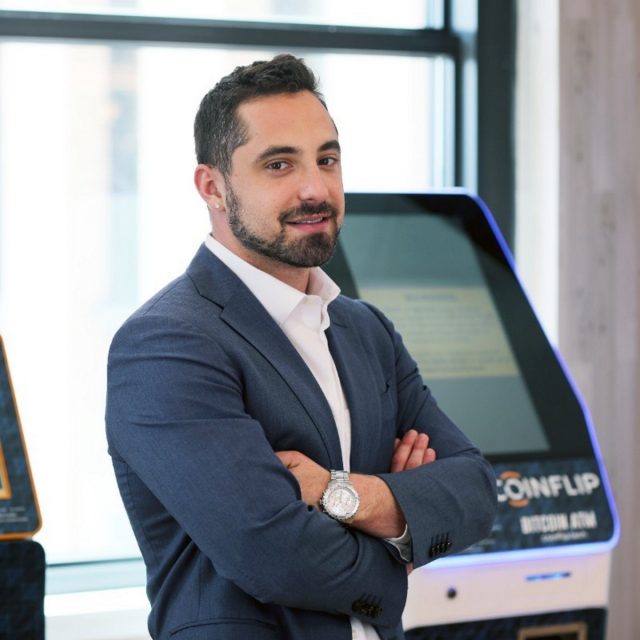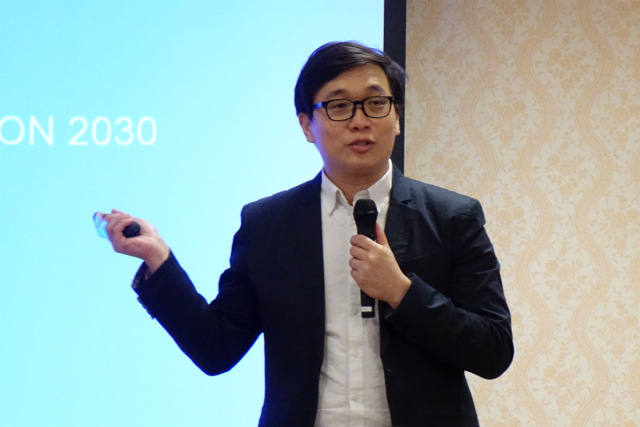At a time when the crypto space is facing some of its greatest challenges, the world wonders if there are any other uses for blockchain technology, the “backbone” behind cryptocurrency tokens.
There are so many ways blockchain technology can be used and deployed across the board.
Our panel of experts provide them.
Here are the other uses of blockchain technology.
Brock Pierce, Chairman at Bitcoin Foundation
“Blockchain technology can be used for a variety of applications beyond cryptocurrency tokens. Some of the most prominent uses of blockchain technology include:
1. Smart Contracts: Smart contracts are digital contracts that are stored on a blockchain and are enforced automatically. They can be used for a range of different applications such as automating insurance claims or real estate transactions.
2. Digital Identity Management: Blockchain technology can be used to create a secure digital identity for users. This ensures that users’ identities are protected from theft and fraud.
3. Supply Chain Management: Blockchain technology can be used to track the movement of goods throughout a supply chain. This can help reduce costs and ensure that the goods are delivered on time.
4. Digital Voting: Blockchain technology can be used to create secure voting systems that are more resistant to manipulation. This could lead to more secure and transparent elections.
5. Data Storage: Blockchain technology can be used as a secure way to store data. This could be used to store medical records, financial records, and more.”
Related: Bitcoin Foundation Chairman Brock Pierce Talks to E-Crypto News
Daniel Addison, CEO at HCISS.IO
Money transfers
“Transfers using blockchain can be less expensive and faster than using existing money transfer services.Financial exchanges
Using blockchain for exchanges allows for faster and less expensive transactions. Moreover, a decentralized exchange doesn’t require investors to deposit their assets with the centralized authority, which means they maintain greater control and security.Lending
Smart contracts built on the blockchain allow certain events to automatically trigger things like a service payment, a margin call, full repayment of the loan, and release of collateral. As a result, loan processing is faster and less expensive, and lenders can offer better rates.Insurance
Using smart contracts on a blockchain can provide greater transparency for customers and insurance providers. Furthermore, using smart contracts can speed up the process for claimants to receive payments.Real estate
Using blockchain technology to record real estate transactions can provide a more secure and accessible means of verifying and transferring ownership. That can speed up transactions, reduce paperwork, and save money.Apart from cryptocurrency tokens, there are various areas of businesses that Blockchain Technology is used for. These business areas such as, automotive, supply chain, logistics, healthcare data management and energy are taken center stage in the blockchain space.
They are making use of DApp (Decentralized Applications) also known as smart contracts to automate certain aspects of their operations like pay-for performance type contracts, tracking and tracing for transparency of transactions, protection of digital assets and avoidance of fraud.
The basic concept of a smart contract is basically a self-executing program that automates transactions. Once the terms and conditions are agreed by parties involved, then the code is written to be executed across the blockchain.”
Related:07 Applications for Blockchain Technology
Kåre Kjelstrøm, CTO and CPO at Concordium
“While hosting cryptocurrencies is what blockchains are usually known for by the general public, the crypto aspect is actually a side-effect of a public permissionless distributed ledger and blockchain is really a technology that enables new ways of doing business.
In supply chain management, for instance, a blockchain can track and trace products and carbon emissions as they shift hands. It can be used to produce secure and transparent voting systems, fractionalize and track ownership of physical assets such as cars, boats, houses; and blockchain enables the rise of decentralized finance, a new set of monetary instruments based on crypto currencies that use the blockchain as a trusted medium instead of a third party such as a bank.
Concordium is such a layer-1 blockchain, but with an added layer of trust in the shape of an identity infrastructure. With the identity infrastructure, anyone transacting on Concordium will be able to prove aspects of their real-life identity to anyone in the world inside and outside blockchain. And all transactions on the blockchain contain an encrypted reference to the identities of the involved parties, which assures serious businesses that illegal activities can be successfully investigated.
In order for a user to open an account on Concordium, users must go through an identity verification process which requires the use of government-issued documents (i.e. passport or driver’s license) and a liveness proof in the form of a selfie. The identity providers validate this information and issue users a digital identity.
With the digital identity, a user can now prove their identity to other applicants like government websites, banks, and insurance companies via a zero-knowledge-proof, a cryptographic construct that allows another party to verify claims. The user decides whom to give which information to, which makes this solution self-sovereign.
In 2023, Concordium is adding the capability for any account holder to issue so-called verifiable credentials and hand them out to other account holders. For instance, a university could issue a diploma to a student who could then prove their degree to a prospective employer; an employee could receive a VC from their employer and use it to log into the employee portal and access their company benefits.This opens a wealth of new business opportunities that are only possible because of blockchain coupled with identity.”
John Burris, Chief Strategy and Blockchain Officer at Together Labs and President of MetaJuice
“Much like the internet (or TCP/IP) was an enabling technology…so is blockchain technology. And the use of blockchain technology goes well beyond the well-known token use cases of Bitcoin, Dogecoin, and the like.
1. NFT’s (Non Fungible Tokens)-that secure ownership, often of some asset or creation is one powerful use case. There is work happening to have the ownership of all real-world real estate controlled by the NFTs or blockchain tech – so ownership will never be disputed. Of course, NFTs are being used to lock in ownership of digital artwork and other creative assets – ownership, exclusivity, and authenticity can all be proven with information stored/locked on the blockchain. People are also using NFTs to enable fractional ownership of an asset. So parties might purchase a million-dollar painting or collectible and then enable 10,000 unique NFTs to represent ownership – so owning one of these NFTs would be worth 1/10,000 of the asset.
2. Identity – storing it, authenticating it, and communicating it is another strong use case for blockchain technology. Over time individuals are likely to have their identity (age, citizenship, address, and the like) all stored and protected on the blockchain. This identity will be powerful in that once it is authenticated (say by a government or trusted entity) the individual will have proof of who they are and control over how that information is used. As an example – if someone needs to prove they are over 18 years old, an individual can share a blockchain address and prove that they are over 18 – without sharing their birthdate, sending a picture of their ID/passport, or going through other checks. That will be very powerful.
3. Avoiding Censorship – putting important and sometimes controversial information on the blockchain may be a way to ensure the public can see the information and make it very hard for governments or private companies to stop publishing/sharing of such information. Given some blockchain protocols are very decentralized and globally distributed, it could make them the ideal place to post/share information that would otherwise be censored by private platforms (ie. social networks) or governments.”
Lacey Hunter CEO and Co-Founder at TechAid
“There’s an important distinction to be made – cryptocurrency tokens themselves do not have to be used as a means of transmitting monetary value. They are simply a byproduct of blockchain infrastructure that have thus far been predominantly used to engage in speculation and arbitrage (e.g., purchasing tokens for USD in the hopes that they will increase in value or exchanging one type of token for another with the belief that there is a spread to be made between buying and selling digital currencies in different jurisdictions, e.g. US vs Japan). This misses the point of what tokens can enable – immensely valuable use cases such as record keeping, governance and data transmission.”
“Tokens, or tokenization, refer to an immutable ID that can be assigned to any transaction or record to indicate that something happened or that something exists. That’s it! For Example, in a supply chain, all transactions could be ‘tokenized’ and transmitted ‘on-chain’ for visibility to all parties without having to access a centralized database and without having to transmit information from one party to another. This is hugely valuable in terms of time savings to prove the provenance of goods (e.g., who owns what) and where the goods came from (e.g., did these coffee beans come from a farm that does not use child labor? Did they pass through the various value-added processes from the providers that we think that they did?) that otherwise have to be proven out with inefficient, manual spot-check documentation or physical inspection audits.”
Dr. Luyuan Fang, Chief AI and Data Officer at Prescryptive Health
“Blockchain technology provides an incredible new level of data security by controlling information and ensuring its accuracy. In healthcare, few things are as important as data security and certainty. In the past 13 years, 5,150 data breaches have been reported to the U.S. Department of Health and Human Services’ Office for Civil Rights. This shows that healthcare systems are regular targets for data theft and companies need to act accordingly. Blockchain technology has the ability to minimize theft risks while increasing convenience for patients.
Aside from companies, consumers can take advantage of the security, privacy and accessibility blockchain provides, specifically with their healthcare and prescription drug data. Putting healthcare data on the blockchain is the way to decentralize control of healthcare and prescription data from a few large healthcare institutions, insurers, and payors directly to the hands of consumers, who can now have secure ownership of their data and create a portable record that can be shared with any medical provider or pharmacist, with the highest level of security on any device. When a user puts their data on the blockchain, they are given a unique digital key so only the patient and approved parties are able to use it. This reduces the risk of private medication information being seen by unauthorized parties, creating a new level of security and accomplishing portability by allowing patients to have full control over their healthcare experience from their own smartphone.”
Erik Anderson, Senior Digital Assets Research Analyst at Global X
“Blockchains are highly flexible databases which are capable of hosting and securing computer code across a distributed network of devices, allowing them to function as globally decentralized computing platforms. Blockchain technology is most frequently associated with cryptocurrencies and peer-to-peer payments, but this technology can excel in any application where trust, privacy, and efficiency are important. Decentralized applications (dapps), a foundational component of Web3, rely on blockchains to host their code and to secure any activity that occurs on these platforms without relying on a centralized administrator or intermediary.
The security, tamper-resistance, and global accessibility of blockchains also make them ideal platforms for storing sensitive information that may need to be accessed by authorized parties. We are seeing these qualities being leveraged in the management of healthcare records, supply chains, identity verification, and more. The tokenization of real-world assets is another fascinating application of blockchain technology.
For traditional financial assets such as stocks and bonds, the most prominent advantages of tokenization include near-instantaneous trade settlement, minimal transaction costs, robust security assurances, and an immutable record of asset ownership. Tokenization also has implications for alternative asset classes such as real estate and art. By digitally representing these assets in a blockchain-compatible format, illiquid assets can become more easily transactable and accessible to a broader investor base.”
Sid Jha, founder and CEO at Arbol
“In insurance, the continued integration of AI, ML, and other emerging technologies such as blockchain and smart contracts will allow insurers to process and analyze more complex datasets, resulting in more accurate underwriting and pricing decisions for parametric policies. This means that insurers will be better prepared to respond to natural disasters and climate change-related events.
Additionally, these technologies will enable insurers to offer consumers more personalized products and services, such as parametric policies that are triggered by specific weather events or climate-related risks. In turn, this will allow customers to better protect their assets from the effects of natural disasters and climate change.”
Ben Weiss, CEO and Co-founder at CoinFlip
“As the DeFi industry continues to innovate and evolve, we will begin to see valuable use cases for blockchain emerge. I believe the industry is still in the first inning and the opportunities to improve everyday processes, security, experiences, ownership, and more are endless.
In particular, I’m interested in the potential of smart contracts across all industries. Essentially, smart contracts eliminate intermediaries, offer increased transparency, and can be used to automate processes like payment settlements or asset transfers. By reducing the need for manual processes, it can also reduce costs and increase efficiency for companies.
I believe blockchain technology not only presents the opportunity to improve efficiency and transparency, but it paves the way for the physical world to also exist digitally too. For instance, blockchain technology can allow people to attend events in the metaverse, or digital world, that they might not already have access to in the physical world such as concerts or sporting events.
Not only can it potentially revolutionize event experiences, but it also creates opportunities for property ownership such as real estate and NFTs. In fact, we are seeing more companies investing in metaverse real estate and the market itself is expected to grow by $5.37 billion by 2026. These represent only a few of the opportunities blockchain technology has to offer and I look forward to all the further innovations that will potentially be developed in the future.”
Alfonso de Gaetano, Founder at Crurated
“ I spent the past 11 years at Google. At Google you are exposed to the latest and best in class technologies that have been used to transform the world. The key rule is not to use technology for the sake of using technology. It has to create value.
In our case, blockchain creates value because traceability is a key issue given that wine gets worse every time it travels from one place to another. And we only work directly with producers. It wouldn’t be useful if we were buying bottles already available in the market where previous owners and movements of the bottle are not clear and transparent.
We are also the first wine marketplace in the world to use blockchain technology where it matters, certifying at scale every single bottle that comes directly from producers into our warehouse in Burgundy. We offer clients full traceability from the moment it leaves the Producers’ cellar to the moment it arrives at their own cellars. We’ve built an infrastructure that connects the Crurated marketplace to the warehouse management system and our blockchain infrastructure.
In addition, generally speaking, gaining access to top producers and rare wines is challenging if not impossible for most wine lovers. With strong producer relationships and a blockchain-driven platform, Crurated is making world-class wines accessible to people around the world while at the same time bringing new technology into wine sourcing and collecting.
Our new barrel program is also a first in the wine industry. Members can now purchase fractions of barrels which are certified through blockchain and NFT technology. This new offering also gives members the ability to customize bottle formats and labels based on their unique needs.”
Donald Patterson, Professor of Computer Science at Westmont and UC Irvine and CTO at Blockpliance
“Blockchain technology has generated considerable interest and enthusiasm as a means of tracking the ownership of “tokenizable” assets. In essence, a tokenizable asset is anything that has a unique digital signature. For digital assets, such as music, art, or files, software such as SHA-256 hashes may be used. However, more elaborate strategies must be employed for physical objects. These could include embedded RFID tags with unique codes or serial numbers that are difficult to copy or modify. Once such unique properties are established, the blockchain system can be applied in various domains.
For example, blockchain technology could be implemented in voting systems by assigning individuals a token based on their national ID and a password, with a “vote” being cast by sending the token to a candidate. In supply-chain management, blockchain technology could be used to track inventory custody, particularly in disaster recovery scenarios where it can be difficult to determine who possesses vital resources such as vaccines, food, and generators, leading to corruption. One particularly disruptive application of blockchain technology may be in title insurance for real estate, as establishing a clear chain of ownership through a blockchain would greatly reduce the need for insurance against false ownership claims.
But there is reason to be wary of overusing blockchain technology. A running joke among engineers that that 90% of the time that people want to use a blockchain to implement something they should just replace the word blockchain with database and they will get an easier, more robust, straightforward solutionIt is prudent to exercise caution in the widespread adoption of blockchain technology. Among engineers, there is a prevalent quip that suggests that 90% of the time, when individuals contemplate the implementation of a blockchain-based solution, they could instead substitute the term ‘database’ and obtain a more straightforward, robust, and efficient result.”
Justin Giudici, Co-Founder at Telos
“Apart from cryptocurrency tokens, blockchain technology has numerous other uses, including supply chain management, identity verification, voting systems, and decentralized storage. Blockchain technology can be used to create secure and transparent systems that eliminate the need for intermediaries and increase the efficiency of various processes. For example, blockchain-based supply chain management systems can provide greater visibility and traceability for products, while decentralized storage systems can provide a more secure and reliable way to store data.”
Anndy Lian, Inter-Governmental Blockchain Advisor
“Blockchain technology has many use cases beyond cryptocurrency tokens. It can be used in supply chain management, identity management, voting systems, healthcare, real estate, digital art and collectibles, and energy management, among others.
The technology can provide greater transparency, security, and efficiency in various industries, helping to reduce fraud, increase trust, and improve data privacy. As the technology continues to evolve, more innovative use cases are likely to emerge.”
Ameen Cat Founder at METAVISTS
The number one question for blockchain technologies from famous critics is always, “What are the use cases?” I won’t dismiss this question. The overvaluation of cartoon pictures and the rapid pump-and-dump of numerous tokens have left most common folks unrestful. Is this a digital art scene, decentralized finance, or a place where people go rogue without repercussions?
Let me share with you some practical and beneficial ways we can integrate blockchain technologies, particularly NFTs, to enhance our current experience as consumers or creators. But before we dig deeper, let us be on the same page about how we define NFTs. Throw the whole “non-fungible token” out of your mind. View NFTs as digital memberships that are irreplaceable, irrefutable, and censorship-resistant.
We can use NFTs as digital memberships to access gated creator communities. Those who buy blockchain-based digital memberships can access premium content from creators. Creators can choose tier levels and durations of the NFTs that will have access to the content. We can even do this for news, TV, or streaming subscriptions.
At Metavists, we are working on this use case to help non-profits generate recurring revenue through NFT fundraisers that give donors access to premium content of the good works behind the scenes in giving back to the community.
Creators can also offer loyalty rewards to their members using digital memberships. Creators can take a snapshot of those who log in with their digital memberships and automatically airdrop them rewards from advertisers, promoters, and more.
Concert tickets have great resale value. By having them in the form of NFTs, buyers’ interests are protected by ensuring the authenticity of the tickets, fighting duplicates, and preserving their value.
In the gaming community, it is a very common concept where players sell accounts in which they have leveled up items or heroes. By having these characters, accounts, or in-game assets in the form of NFTs, they can give a smoother experience for their users in trading these in-game assets. Moreover, it can also benefit the gaming companies by creating an alternative income by setting a commission on each sale, similar to how NFT marketplaces have a 2% commission on every trade.
There are many other ways we can integrate NFTs to give the general public a new and better experience around our everyday activities. The goal is to get rid of the technology’s name and focus on its use case. Many big companies have done this well, such as Reddit, which has NFT-based avatar profiles. We are still young in this arena, and I believe we will see many more integrations.






















